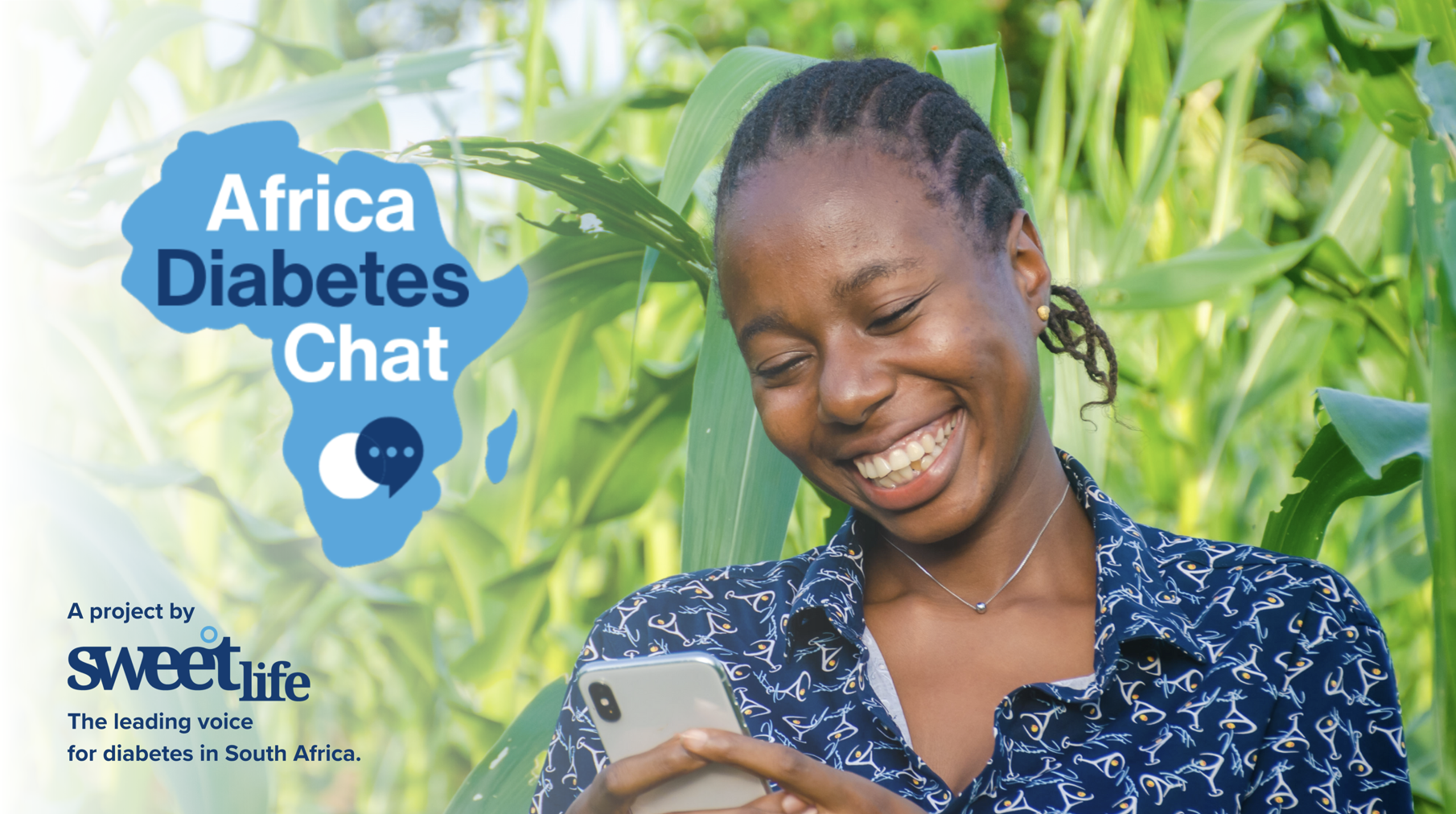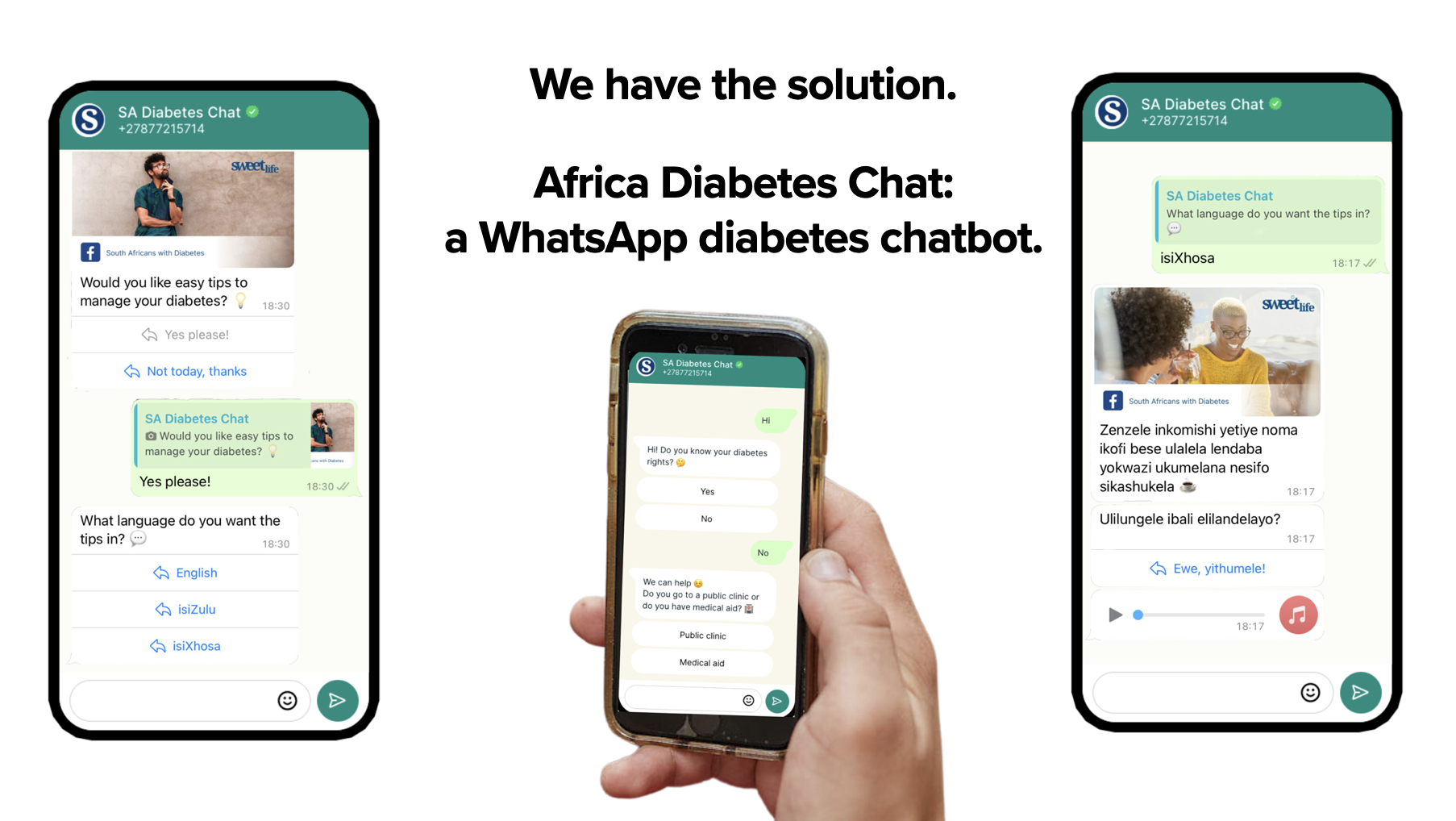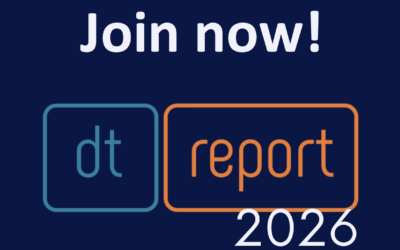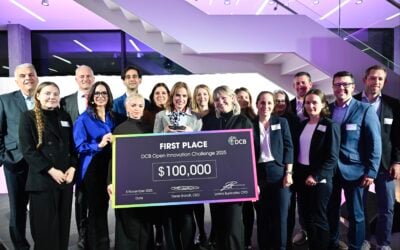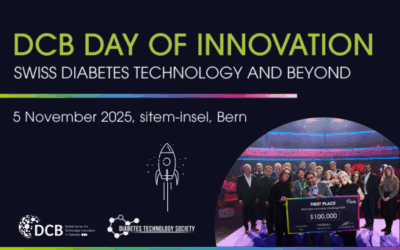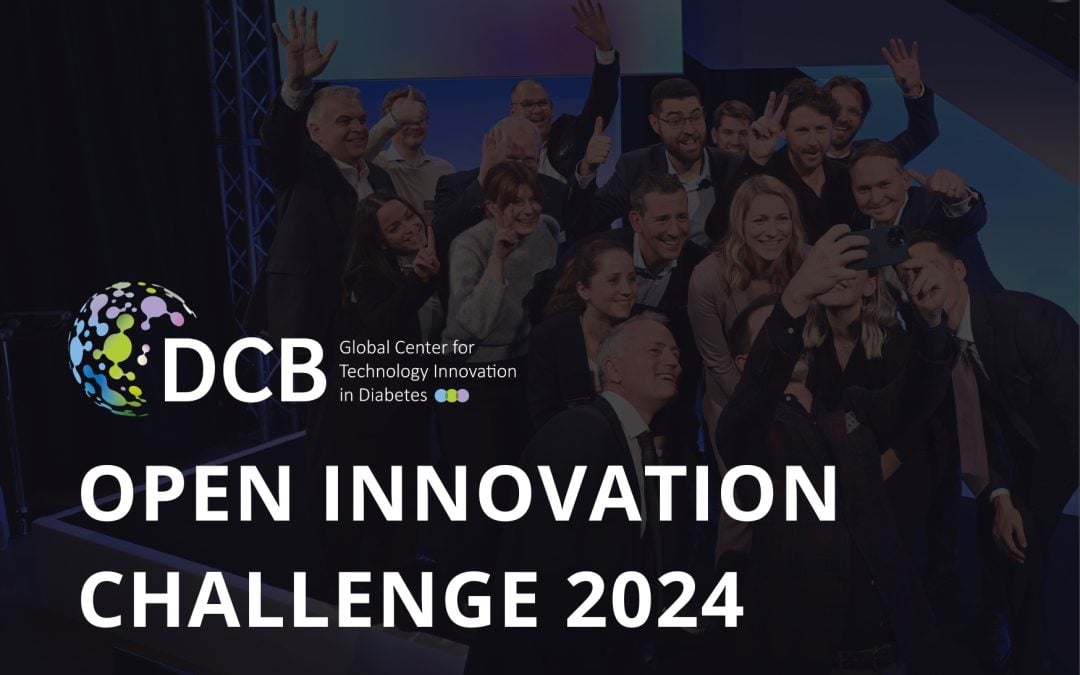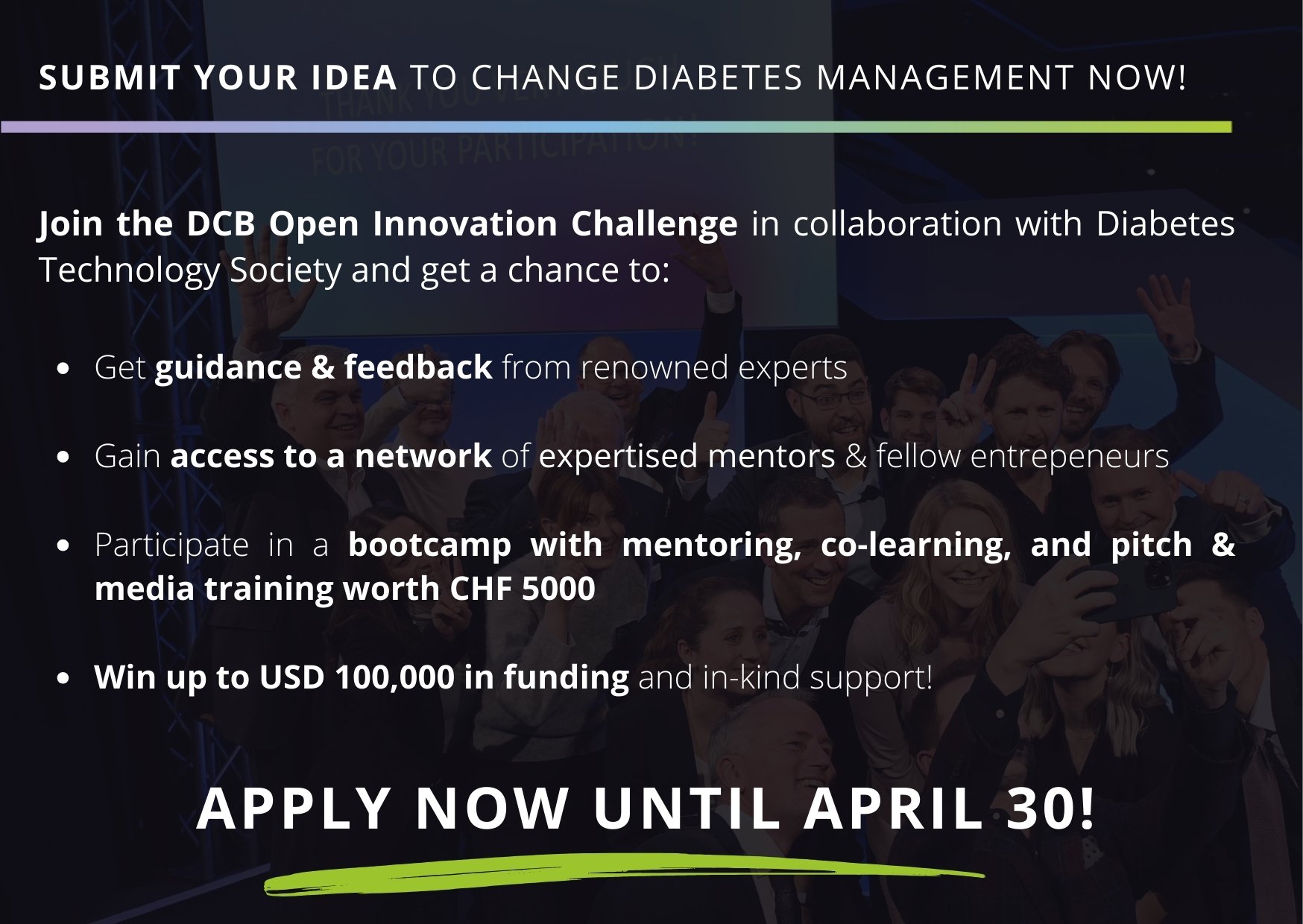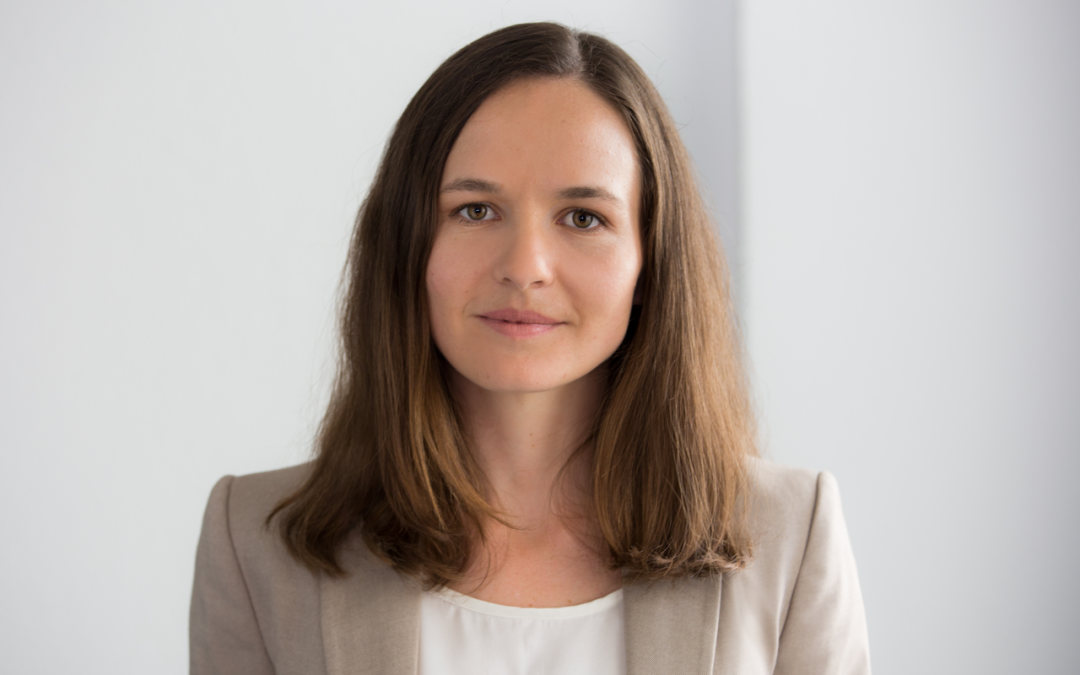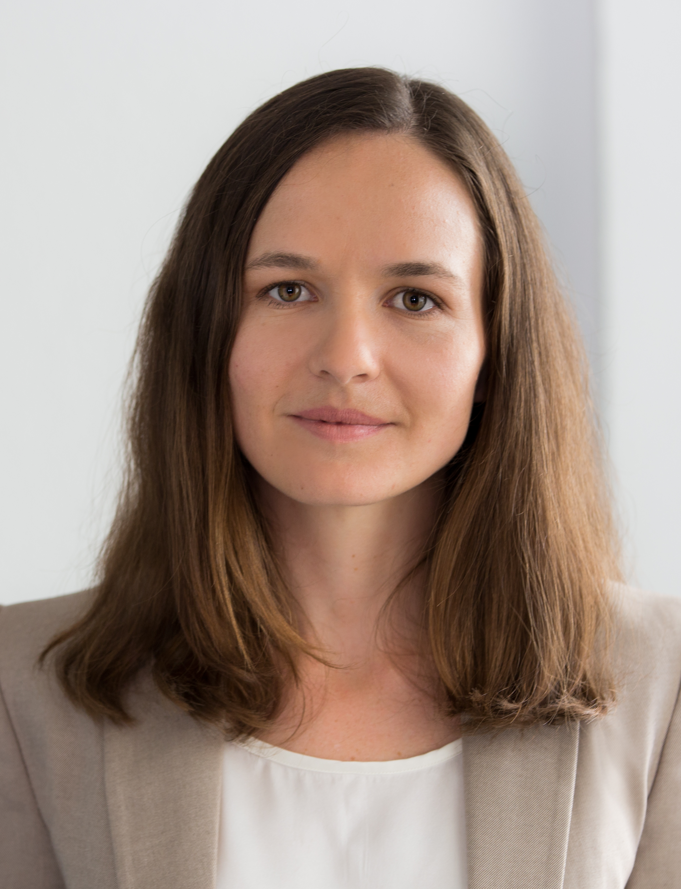Die Umfrage für den DT-Report 2026 ist ab sofort verfügbar – Seien Sie dabei und gestalten Sie die Zukunft der...
DCB Newsletter #3/24: The DCB Open Innovation Challenge is back!
DCB Newsletter #3/24: The DCB Open Innovation Challenge is back!
Dear community,
it’s that time of the year again…the DCB Open Innovation Challenge is back – and this time, it’s stronger than ever! Do you have an innovative idea to improve diabetes management with diabetes technology? Then continue reading and learn more about the challenge, important deadlines and what’s in it for you! 🚀

Can your idea change diabetes management forever?
Do you have an innovative idea to facilitate change diabetes management forever? Want to see how your idea becomes reality? Do you have valuable insights to help co-create the diabetes technology of tomorrow? Do you have feedback to share with others in the community?
We are looking for innovators, co-creators, scientists and diabetes supporters from around the world to join our open idea call and be part of an innovative community at the forefront of diabetes technology.
Now you might be thinking, „That’s great, but what does it have to do with diabetes?“. Most people would perhaps consider diabetes as the opposite of a rare disease when about 537 million people worldwide live with the disease, making it a prevalence of 1 in 10 [3].
However, most outlets usually only cover the most common type 1, type 2 and gestational diabetes. In reality, there are many other types which are considered rare types, and some of them are results of rare diseases. In this newsletter, we want to draw your attention to some of them, to honor all people living with diabetes – no matter how rare the type!
What’s in it for you?
- the chance to win USD 100,000 in funding and in-kind support
- a chance to participate in our one-week bootcamp with mentoring & co-learning, and a pitch training worth CHF 5,000
- access to a network of experts from the Diabetes Center Berne, @Diabetes Technology Society, and others
- a kick-start to your business with first class coaching and training
- a safe harbour where your idea remains entirely yours
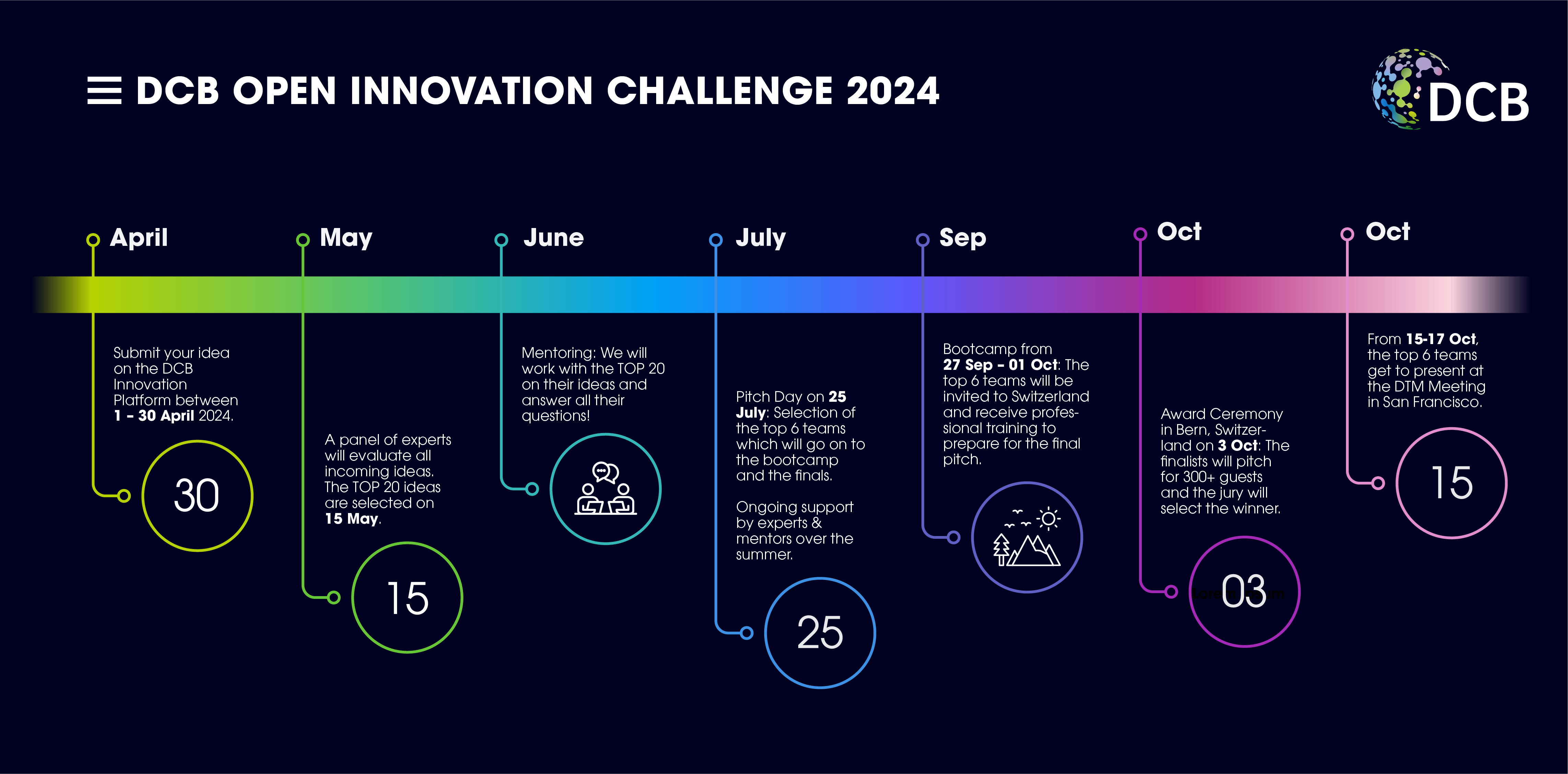
Everything at a glance – this is the timeline of our 2024 Innovation Challenge!
Ema Grabenweger, Innovation Manager at DCB and responsible for the challenge, says: „Our challenge is an excellent opportunity for anyone who would like to get expert guidance on their idea in diabetes technology. Through a carefully designed process we provide a compass for innovators on all levels to efficiently & successfully navigate the complex landscape of developing a medical product or solution to improve the lives of PwD. We do that by offering an open innovation platform for exchange with the community, connection to international experts and mentors who can support to shape the ideas, exposure to venture capitalists and experienced start ups, world-class bootcamp training in the beautiful Swiss Alps tailored to innovator needs. Additionally, the top 6 finalists get to present in front of >300 people in Switzerland and have the opportunity to win an award of USD 100,000 in cash and in-kind service. All of that while having fun! Join our community and make your idea dreams come true!“
Ready to become part of diabetes innovation?
All you have to do is register on our Innovation Platform at https://innovation.dcberne.com/ and submit your idea! All former participants (excluding the finalists) of the past years can also apply again, given their idea has been developed further since the last participation.
Idea submission is still open until April 30 – get the word out and apply! You can find more information on https://www.dcberne.com/en/innovation-challenge/
Whether you are a start-up, a healthcare professional, researcher or an individual, if you have an idea or insight on how to improve the lives of people with diabetes, we want to hear from you! Thank you so much for reading and see you soon for the next edition of the DCB Newsletter!
This post was previously published in Linkedin. Click here to see the original publication.



